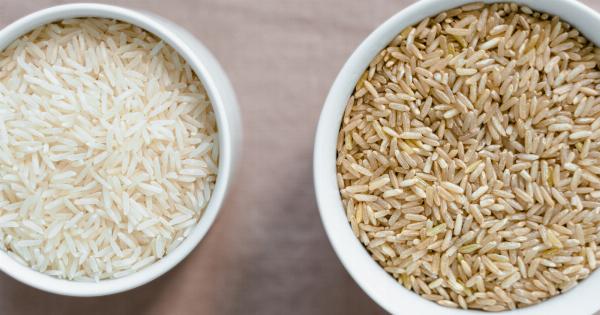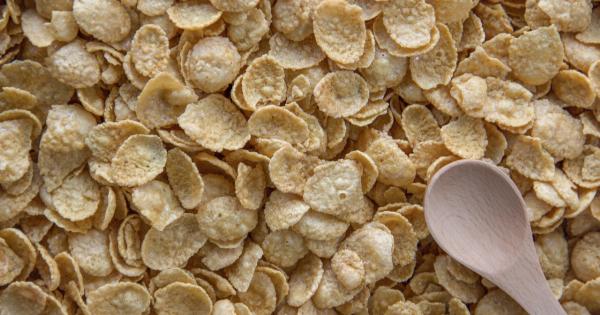Fiber is an essential constituent of our diets that serves numerous benefits. It is a type of carbohydrate that helps regulate digestion and maintain a healthy digestive system.
It’s also known to control blood sugar levels, prevent constipation and reduce the risk of heart disease.
While fiber is undoubtedly beneficial, adding too much of it in one’s diet can have adverse effects on the body. Consuming more than 10 grams of fiber per day can lead to several complications.
Let’s take a closer look at why going over 10-gram intake of fiber is not recommended.
What is Fiber?
Before diving into the negative effects of excessive fiber intake, let’s talk about what fiber is and how it is beneficial to the body.
Fiber is the indigestible part of the plant-based foods that we consume. Unlike other nutrients, our bodies can not digest fiber. Instead, it passes through our stomach and intestines undigested.
Hence, fiber plays an essential role in maintaining good digestive health. Fiber is available in two forms – soluble and insoluble fiber.
Why is Fiber Good for Our Bodies?
As mentioned earlier, consuming a proper amount of fiber is essential for our body’s overall health and well-being. One of the significant benefits of fiber is better digestion.
It adds bulk to the stool, which makes it easier for our bodies to pass the waste material through our intestines.
Fiber also helps regulate blood sugar levels. Soluble fiber dissolves in water and forms a gel-like substance that slows down the digestion of carbohydrates and sugar, thus regulating the sugar levels in the body.
Furthermore, consuming fiber reduces the risk of heart disease. Studies show that fiber can help lower cholesterol levels in the body by binding to bile acids that result in their removal from the body.
Hence, reducing the risk of clogged arteries, heart diseases, and strokes.
Why Too Much Fiber is Not Recommended?
While an adequate amount of fiber is essential, it’s crucial not to overdo it. Consuming too much fiber can have adverse effects on our bodies.
Complications
A sudden increase in fiber intake can cause bloating, abdominal pain, and cramps. This is especially true if you’re not used to consuming it.
Fiber absorbs water, so consuming a large amount without accompanying it with enough water can lead to constipation.
Fiber can also bind with essential nutrients like zinc, calcium, and iron and remove them from the body, leading to potential deficiencies.
This is particularly true when consuming high-fiber diets exclusively, like vegan or vegetarian diets, which require careful planning to meet essential nutrient needs.
Effect on Digestion
Consuming too much fiber can lead to diarrhea. Fiber absorbs water and adds bulk to the stool. Overconsumption may cause an excess buildup of gas in the intestines, leading to abdominal discomfort and loose stools.
This is also true when consuming too much insoluble fiber, which adds bulk to stools and aids in bowel movements.
Intestinal Blockages
In rare instances, consuming too much fiber can lead to intestinal blockages, especially for people with underlying medical conditions.
The blockage is caused by a large mass of fiber that has accumulated in the intestines and has been unable to pass through the digestive tract. Usually, this can only happen when consuming vast amounts of fiber from supplements, not from consuming fiber-rich natural foods.
How Much Fiber is Recommended?
Now that we’ve established the negative effects of overconsumption, let’s discuss how much fiber intake is recommended.
The recommended daily intake of fiber is 25-30 grams, which is achievable by consuming a balanced diet inclusive of fruits, vegetables, whole grains, and legumes.
It’s also essential to note that the recommended fiber intake may vary depending on age, sex, and health conditions. For instance, adults above 50 years may need more fiber to prevent constipation and maintain healthy bowel movements.
Fiber Supplements
While fiber supplements are a convenient and easy way to meet daily fiber requirements, care must be taken not to overconsume them. Taking fiber supplements along with consuming fiber-rich foods can lead to overconsumption and resultant complications.
Therefore, before adding fiber supplements to your diet, it’s advisable to consult with a healthcare provider to determine the right dosage.
In conclusion, fiber is undoubtedly beneficial to our bodies’ overall health and well-being, but it’s essential to consume it in moderation.
Overconsumption can lead to complications like diarrhea, blockages, and deficiencies that can be detrimental to our health. So, exercise caution when consuming fiber and enjoy a well-balanced diet that provides all necessary nutrients to your body.




























